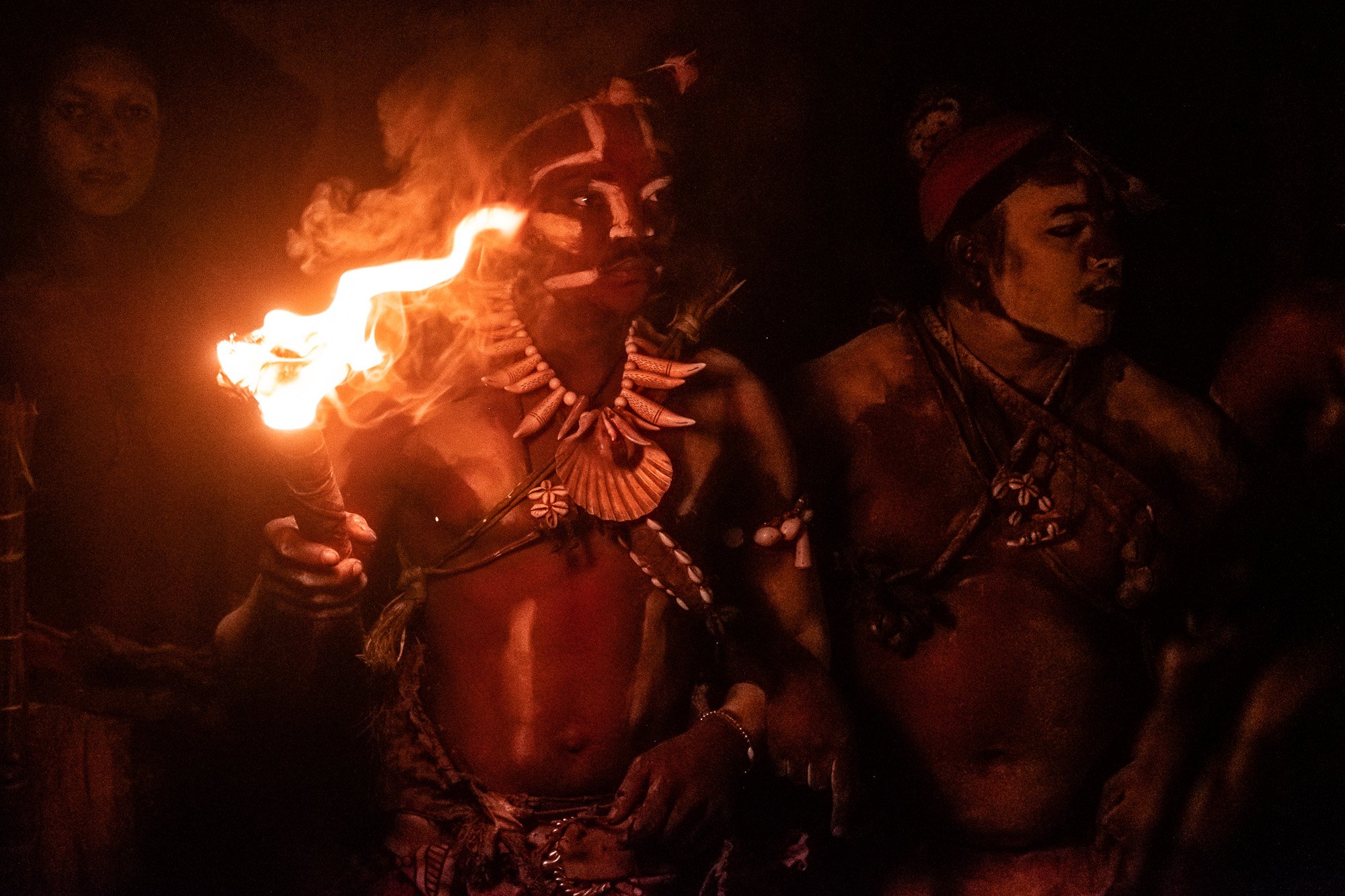This is a fully traditional multi-day ritual facilitated by a Nganga (consecrated shaman and healer) and the community, using the African medicine plant iboga. The initiation happens in the forest of Gabon, Africa.
This Bwiti Missoko initiation can help you to...
Go deeper within yourself
Find your own rhythm in life, your authentic way, so you’re no longer hesitating
Receive deep spiritual wisdom, awakenings, and tools that can support you in your
life
Receive answers to your questions and find what you’re looking for
Break free of lingering issues, blockages and self-limiting beliefs
Gain understanding and reset your inner programs and thought patterns
Become empowered and embody your inner strength
Heal relationships with yourself as well as your family, and past relationships
Let go of grief and come to deep forgiveness, peace, love and wisdom
Detox the mind, body, emotions, and spirit
Generational healing and connecting with your ancestors
Heal some medical issues
To participate in this initiation, it’s important that you...
Don't have a heart condition
Don’t have serious mental health issues (e.g. schizophrenia, epilepsy etc.)
Have a deep question you’re searching for an answer to (and genuinely willing to hear it)
Are not here just have an interesting psychedelic experience
Want to truly transform
Can express yourself truthfully and vulnerably
Respect cultural rules and protocol (before, during and after the initiation)
Are excited by intrepid traveling, including in the forest
Are able to go with the flow when plans may change (it’s Gabon — which means you're on African time and custom)
If you’re feeling the call, come. It’s your heart speaking.
See below for information about the program and booking.
Contact us for questions and booking.
About the Bwiti Missoko Tradition
The Bwiti Tradition originates from the Pygmies in the forests of the Congo river basin. It comes from the Primordial Tradition, the universal knowledge from which all spiritual traditions of humanity originate.
The Bwiti Tradition is made of a series of ancestral mystico-spiritual initiation rites, using the root of the sacred iboga tree. There are a number of different branches of the Bwiti tradition. Missoko is one of the original branches.
This ritual allows the initiate to enter other fields of consciousness, accompanied by specific practices, the sound of the one-string bow (mongongo) and other instruments, songs by the whole community, specific dances, and elements and medicines from the forest. These act as a guiding thread in this journey within. These experiences bring visions, experiences and knowledge. This ritual is about practice — you learn and discover by doing.
About the venue
The Bwiti Missoko initiation happens in the community’s traditional temple in the forest of Gabon (weather permitting).
Before your initiation, you’ll also have some preparatory ceremonies at the spiritual father’s temple in the forested area of Libreville.
The Program
Bwiti Missoko initiation
Day 1
Arrive in Libreville, Gabon.
Day 2
Begin preparation ritual at the temple in the forested area at the outskirts of Libreville (afternoon and evening).
Day 3-4
Rest and prepare inwardly for your initiation (at your own accommodation).
Day 5-7
Bwiti Missoko initiation at the forest and in the temple. At the end of your initiation, you can have some time to meet with the spiritual father 1:1 to help you understand your experience.
Day 8-9
Rest and integrate at the temple or travel back to your accommodation.
Day 10
Prepare for departure from Libreville (get PCR test if needed, etc.) or begin the Go Deeper Program (see below).
Go Deeper Program — 2 weeks of classes & ceremony after initiation; optional
If you’d like to go deeper into the tradition and learn more about yourself and this work, this program is for you. It can be done directly after your initiation.
To support your integration, discovery, and to understand the tradition more fully, the spiritual father and community are available for deeper 1:1 question time and training. Through this you can better understand the tools of the ceremony and participate in rituals.
Two classes per week (evenings and weekends) over two weeks. One of these classes may involve participating in another ceremony at the temple, as an initiate.
You’ll be lodged at your own accommodation at this time.
It’s preferable to let us know if you’d like to do this program when you book, though it is possible to decide when you’re in Gabon.
Exit Ceremony — after initiation; optional
This is an optional “closing ceremony” for those who want to take a step further and fully complete the first level of the Bwiti Missoko initiation. During and after this ceremony you thank the spirits and the community for the acceptance and receive your first Bwiti — a spiritual tool that you can take home with you and use during your spiritual practices upon returning home. You will also go deeper with the traditional knowledge of the Bwiti Missoko tradition.
booking
Note that this retreat is not suitable for those with heart conditions or serious medical/psychological conditions. A detailed application must be completed prior to being accepted.
Spaces are limited. To book, contact bwitiinitiations@gmail.com.
Preparation and what you need to bring
We’ll advise you on a few requirements regarding entry to the country, including yellow fever vaccination certificate and visa to Gabon.
We’ll also share a short list of supplies that will make your experience in Gabon more comfortable.
More information
Check out our About and Resources to find out more about the tradition and iboga.
Please read our Terms and Conditions.
For more questions, contact us.

